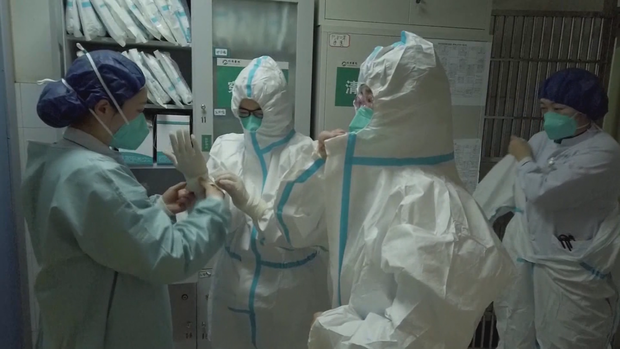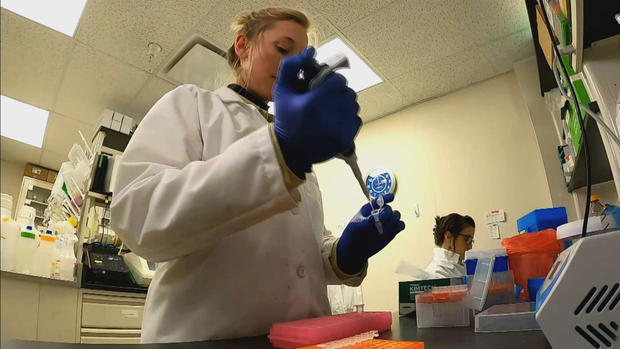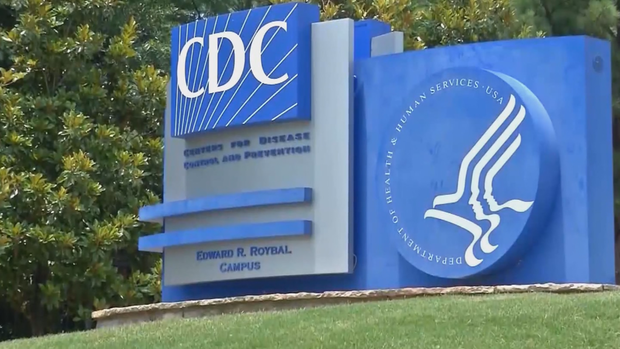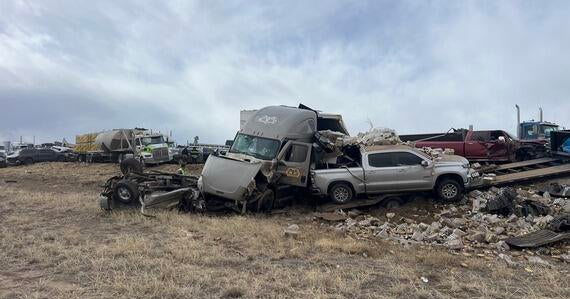CDC: Prepare For Your Life To Be Disrupted By Coronavirus
(CBS4)- Thinking about running to King Soopers or Safeway to pick up a few groceries? Sorry, they're closed. How about catching the Nuggets, Avs, or the Rockies tonight? Forget it, games postponed. Quick business flight out of DIA? Out of luck, all flights suspended. Worried about rush hour? Don't be, Interstate 25 is deserted.
These are just a few examples of what the CDC outlined today will likely happen to everyday life because of coronavirus.
As the CDC bluntly put it on Tuesday, "It's not simply a matter of if, but exactly when."
Now before you say experts are crying wolf, consider a few things.
As of late last night, there were 53 confirmed cases of coronavirus in the U.S. All are connected in some way to overseas travel, especially China, or to the cruise ship that was quarantined off the coast of Japan. That's good.
Having said that, consider that Italy had three cases Friday, but spiked to 283 with seven deaths over the weekend. Despite totally shutting down affected cities in northern Italy, cases are now showing up in areas hundreds of miles away. In other words, it's taking off like a wildfire.
Iran and South Korea have had similar sudden surges in cases within the week.
It's that type of rapid spread, across the entire world, that has America's health experts concerned. Our country cannot be totally sealed off and is certainly not 100% immune from others bringing in the virus. (There are now more than 80,000 cases worldwide in 37 countries.)
So here are the distinct probabilities of what may one day happen to your life, according to the CDC:
Schools closed. Or at the start, students separated into very small groups. More "Tele-schooling" from home.
Businesses closed. More telework options needed.
How about grocery stores or pharmacies? Essential to everyday life but how can they operate?
Daycare closed. You are home with the kids.
Hospitals will come up with new ways to screen and triage patients. No elective surgeries. Patient overload.
Medical suppliers will need to work overtime to keep up with everyday medications, masks, and ventilators.
Travel severely restricted or banned.
Large public gatherings: no Elitch Gardens, Coors Field, Mile High, or even church.
And here's why Colorado may be at a higher risk compared to many other states:
First, our state is a major tourist destination, year-round. Lots of visitors.
Second, DIA is the country's 5th busiest airport.
Those two reasons alone speak volumes about the risk of someone eventually coming into our state (with or without symptoms) and spreading the virus.
Final point. There is a lot we do not know about the new coronavirus. We don't know how contagious it is but believe it is very contagious; we now are thinking the contagious period is greater than 14 days; and we now believe people can spread it without symptoms. And the list goes on.
To sum it up, the risk of catching coronavirus today is very low. Flu continues to be our major concern. But the main message of the CDC is now is the time for health departments, schools, businesses, hospitals, communities, and everyday people to prepare for what is believed to be only a matter of time.
Here is a link to the CDC report- https://www.cdc.gov/mmwr/index.html











